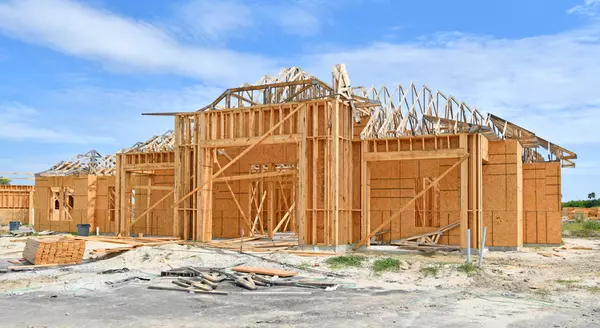Don’t Wait Until Spring To Sell Your House

As you think about the year ahead, one of your big goals may be moving. But, how do you know when to make your move? While spring is usually the peak homebuying season, you don’t actually need to wait until spring to sell. Here's why.1. Take Advantage of Lower Mortgage RatesLast October, the 30-year
Read MoreForeclosure Activity Is Still Lower than the Norm

Have you seen headlines talking about the increase in foreclosures in today’s housing market? If so, they may leave you feeling a bit uneasy about what’s ahead. But remember, these clickbait titles don’t always give you the full story.The truth is, if you compare the current numbers with what usuall
Read More2 of the Factors That Impact Mortgage Rates

If you’re looking to buy a home, you’ve probably been paying close attention to mortgage rates. Over the last couple of years, they hit record lows, rose dramatically, and are now dropping back down a bit. Ever wonder why?The answer is complicated because there’s a lot that can influence mortgage ra
Read MoreWill a Silver Tsunami Change the 2024 Housing Market?

Have you ever heard the term “Silver Tsunami” and wondered what it's all about? If so, that might be because there’s been lot of talk about it online recently. Let's dive into what it is and why it won't drastically impact the housing market.What Does Silver Tsunami Mean?A recent article from Housin
Read MoreWhy It’s More Affordable To Buy a Home This Year [INFOGRAPHIC]
Some HighlightsHome affordability depends on three factors: mortgage rates, home prices, and wages.Mortgage rates are down from their recent peak, home prices are expected to rise at a slower pace, and wages are increasing faster than usual.That’s good news if you want to buy a home because it means
Read MoreThe Top Benefits of Buying a Multi-Generational Home

Has the idea of sharing a home with loved ones like your grandparents, parents, or other relatives crossed your mind? If so, you’re not alone. More buyers are choosing to go this route and buy a multi-generational home. Here’s a look at some of the top reasons why, to see if a home like this may be
Read MoreAre More Homeowners Selling as Mortgage Rates Come Down?

If you’re looking to buy a home, the recent downward trend in mortgage rates is good news because it helps with affordability. But there’s another way this benefits you – it may inspire more homeowners to put their houses up for sale.The Mortgage Rate Lock-In EffectOver the past year, one factor tha
Read MoreExperts Project Home Prices Will Increase in 2024

Even though home prices are going up nationally, some people are still worried they might come down. In fact, a recent survey from Fannie Mae found that 24% of people think home prices will actually decline over the next 12 months. That means almost one out of every four people are dealing with that
Read More3 Must-Do’s When Selling Your House in 2024

If one of the goals on your list is selling your house and making a move this year, you’re likely juggling a mix of excitement about what’s ahead and feeling a little sentimental about your current home.A great way to balance those emotions and make sure you’re confident in your decision is to keep
Read MoreKey Terms Every Homebuyer Should Learn [INFOGRAPHIC]
![Key Terms Every Homebuyer Should Learn [INFOGRAPHIC],KCM Crew](https://img.chime.me/image/fs/chimeblog/20240120/16/w600_original_883ab1b5-ad19-4b6e-b16f-c638e1edf2f8-png.webp)
Some HighlightsBuying a home is a big deal and can feel especially complicated if you don't know the terms used during the process.If you want to become a homeowner this year, it's a good idea to learn these key housing terms and understand how they relate to the current housing market. That will he
Read More3 Key Factors Affecting Home Affordability

Over the past year, a lot of people have been talking about housing affordability and how tight it’s gotten. But just recently, there’s been a little bit of relief on that front. Mortgage rates have gone down since their most recent peak in October. But there’s more to being able to afford a home th
Read More2 Reasons Why Today’s Mortgage Rate Trend Is Good for Sellers

If you’ve been holding off on selling your house to make a move because you felt mortgage rates were too high, their recent downward trend is exciting news for you. Mortgage rates have descended since last October when they hit 7.79%. In fact, they’ve been below 7% for over a month now (see graph be
Read MoreWhy You May Want To Seriously Consider a Newly Built Home

Are you putting off your plans to sell because you’re worried you won’t be able to find a home you like when you move? If so, it may be time to consider a newly built home and the benefits that come with one. Here’s why.Near-Record Percentage of New Home InventoryNewly built homes are becoming an in
Read MoreHomeownership Is Still at the Heart of the American Dream

Buying a home is a powerful decision, and it remains at the heart of the American Dream. Unlike renting, owning a home means more than just having a place to live – it offers a sense of belonging, stability, and freedom. According to Nicole Bachaud, Senior Economist at Zillow:“The American Dream is
Read MoreHome Prices Forecast To Climb over the Next 5 Years [INFOGRAPHIC]
![Home Prices Forecast To Climb over the Next 5 Years [INFOGRAPHIC],KCM Crew](https://img.chime.me/image/fs/chimeblog/20240113/16/w600_original_e42ec5bb-150f-4eed-9151-71ca1ee47615-png.webp)
Some HighlightsIf you’re worried about what’s next for home prices, know the HPES shows experts are projecting they’ll continue to rise at least through 2028.Based on that forecast, if you bought a $400,000 house this year, experts say it could gain over $72,000 in equity over the next five years. I
Read MoreThe Dramatic Impact of Homeownership on Net Worth

If you're trying to decide whether to rent or buy a home this year, here's a powerful insight that could give you the clarity and confidence you need to make your decision.Every three years, the Federal Reserve releases the Survey of Consumer Finances (SCF), which compares net worth for homeowners a
Read MoreAvoid These Common Mistakes After Applying for a Mortgage

If you’re getting ready to buy a home, it’s exciting to jump a few steps ahead and think about moving in and making it your own. But before you get too far down the emotional path, there are some key things to keep in mind after you apply for your mortgage and before you close. Here’s a list of thin
Read MoreWays Your Home Equity Can Help You Reach Your Goals

If you’ve owned your house for at least a couple of years, there’s something you’re going to want to know more about – and that’s home equity. If you’re not familiar with that term, Freddie Mac defines it like this:“. . . your home’s equity is the difference between how much your home is worth and h
Read MoreWhat Lower Mortgage Rates Mean for Your Purchasing Power

If you want to buy a home, it's important to know how mortgage rates impact what you can afford and how much you’ll pay each month. Fortunately, rates for 30-year fixed mortgages have come down significantly since the end of October and are currently under 7%, according to Freddie Mac (see graph bel
Read MoreAchieving Your Homebuying Dreams in 2024 [INFOGRAPHIC]
![Achieving Your Homebuying Dreams in 2024 [INFOGRAPHIC],KCM Crew](https://img.chime.me/image/fs/chimeblog/20240106/16/w600_original_5e6bd2df-a7fc-46ac-a632-1cce0155d908-png.webp)
Some HighlightsPlanning to buy a home in 2024? Here’s what to focus on.Improve your credit score, plan for your down payment, get pre-approved, and decide what’s most important to you.Partner with a trusted real estate agent so you have expert advice on how to achieve your homebuying goals this year
Read More
Categories
Recent Posts











![Why It’s More Affordable To Buy a Home This Year [INFOGRAPHIC],KCM Crew](https://files.keepingcurrentmatters.com/KeepingCurrentMatters/content/images/20240125/202401-1.PNG)